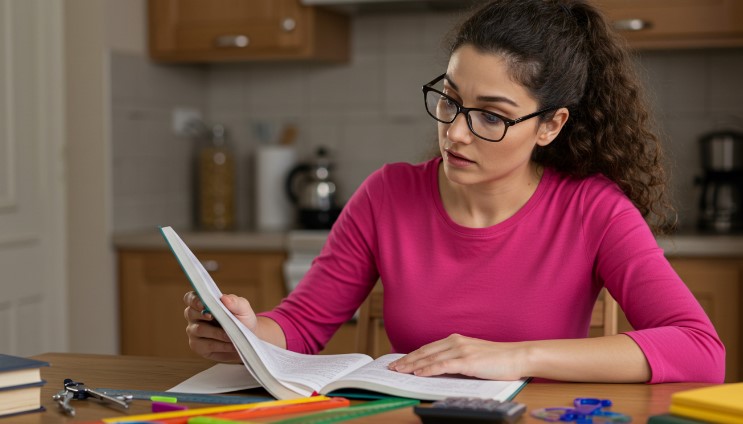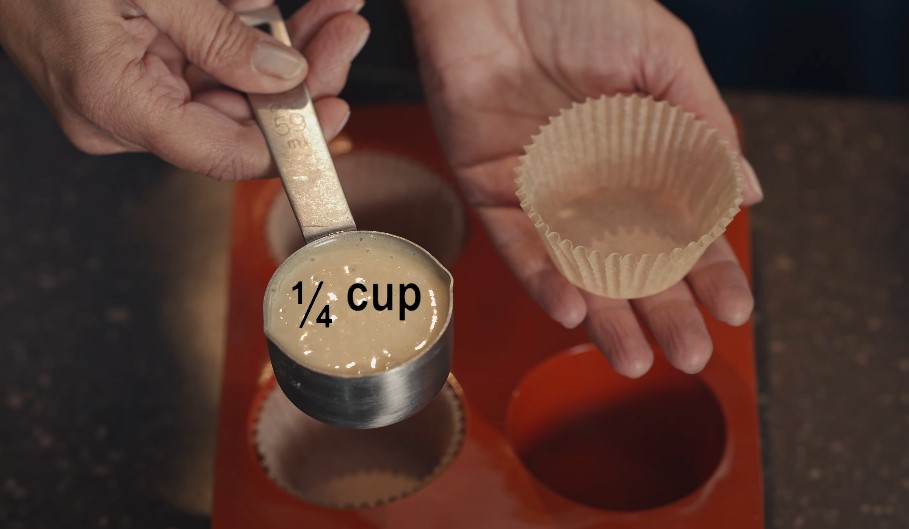
Share Post:
In 2025, brushing up on math as an adult doesn’t mean sitting through high school algebra all over again. It’s absolutely possible, even if math hasn’t been your strong suit since the days of graph paper and long division.
Math isn’t just for students or engineers. It’s a practical life skill, whether you’re doubling a recipe, figuring out the interest on a loan, or comparing mobile phone plans.
More good news? There are tools, programs, and strategies in 2025 designed specifically with adult learners in mind.
Let’s walk through the most effective ways to brush up on core math skills right now.
1. Take a Structured Course
Sometimes you want structure—and a sense of progress you can track. That’s where courses and official qualifications come in. Here are some great options to consider:
Functional Skills Maths Level 2
Often seen as the adult equivalent of a GCSE in the UK, this course covers real-world topics: fractions, percentages, measurements, and budgeting.
Many providers offer structured courses for functional skills maths level 2 online, and sometimes, you can even get them for free. You can complete everything in a few weeks if you’re motivated.
Adult Education Classes at Local Colleges
These aren’t just for full-time students. Many offer evening or weekend math refresher courses, especially useful if you prefer face-to-face instruction. Ask your local library or community center—they often have connections.
Online Platforms like Coursera and Udemy
Courses on everything from basic numeracy to data analysis. Many are free or under $20, and you can go at your own pace. Look for reviews from other adult learners to find the right fit.
The Education Hub (UK)
Offers free Functional Skills training with practical examples—think household budgeting or workplace problem-solving.
2. Use Apps and Online Tools That Fit Your Lifestyle

Technology has completely changed the game when it comes to learning math. The key here is accessibility—tools that fit into your schedule and adapt to your pace. Here are some standouts worth trying:
MentalUP
This isn’t just for kids. It offers over 150 brain-boosting games, including many designed specifically to strengthen math skills through real-life applications like budgeting and conversions. Ideal if you want to improve without even feeling like you’re “studying.”
Khan Academy
Still the gold standard for free, high-quality math education. Whether you’re starting from multiplication or want to refresh algebra or percentages, it’s all covered—clearly, patiently, and without judgment. You can skip around based on what you need, and there’s zero pressure.
Photomath
Snap a picture of a math problem and get step-by-step explanations. Think of it as a math cheat sheet that helps you actually learn what’s going on behind the answer. Perfect for grocery store mental math or helping a child with homework.
Mathway
Like Photomath, but even better for more advanced topics like equations or statistics. If you’re brushing up for a test or certification, this is a solid helper.
National Numeracy Challenge
This UK-based platform focuses on real-world number skills: reading bills, comparing interest rates, figuring out savings. It’s not about passing tests—just making everyday math feel less intimidating.
Star Dash Studios
Think Temple Run meets math practice. This mobile game lets you solve math problems while racing through a movie studio setting. It’s surprisingly fun—and effective if traditional learning bores you.
Pro Tip: Start with just 5–10 minutes a day using one of these apps during your commute, break time, or right before bed. Short, consistent practice is more effective than one long cram session.
3. Get Personalized Support from a Tutor

If you’ve ever felt lost in a classroom, you’re not alone. That’s why working one-on-one with a tutor can make all the difference, especially if you’re dealing with math anxiety or specific problem areas.
Why Tutoring Works for Adults
- Lessons are based on your pace and needs—not a one-size-fits-all curriculum.
- You can ask questions without fear of judgment.
- Tutors help with practical use cases like preparing for tests, improving job-related math, or just “getting” a concept you never quite nailed in school.
Where to Find Tutors
- First Tutors: A trusted UK platform with listings for experienced adult education tutors. You can find someone local or go fully remote.
- Superprof, Wyzant, or Tutorful: If you’re in the US or outside the UK, these platforms are great alternatives with flexible pricing.
4. Build Skills Through Everyday Life

One of the best ways to improve math as an adult is also the most overlooked: using it daily. Here’s how to sneak math into your routine:
Money Matters
Budgeting, comparing loan options, or even breaking down a restaurant bill are all opportunities to flex math muscles. Want to know how much interest you’ll really pay on a credit card? Grab a calculator and find out.
Cooking
Adjusting a recipe for more people? You’re doing ratios. Converting grams to ounces? That’s practical math at work.
Home Projects
Measuring walls for paint, tiling, or furniture arrangements require geometry basics. You’ll be surprised how much math pops up when you take on DIY projects.
Help with Homework
Even if your child is only in primary school, their math homework can be a refresher for you, too. Plus, working together can make it more fun.
Games and Puzzles
Sudoku, logic puzzles, and number-based games are excellent for sharpening problem-solving without feeling like work.
Tip: The Family Maths Toolkit has loads of free activities you can do with your kids—or on your own—to keep your math brain engaged in fun ways.
5. Shift Your Mindset
Let’s be real: a lot of adults carry around baggage from past math experiences. Maybe it was a harsh teacher, or just a bad grade that made you think you “weren’t a math person.” That’s nonsense. You absolutely can improve—and mindset is a big part of it. Here’s how to rewire your thinking:
Mistakes Are Part of Learning
Getting something wrong doesn’t mean you’re bad at math—it means your brain is working it out. Stick with it.
Confidence Comes From Practice
Even just five minutes a day builds familiarity and lowers anxiety. Apps like the National Numeracy Challenge are built to encourage you with small wins.
Speed Doesn’t Equal Skill
You don’t need to solve problems fast to be good at math. Taking your time often leads to deeper understanding.
Break Things Down
Instead of staring at a problem and freezing, break it into smaller chunks. For example, if you’re trying to calculate how much wallpaper you need for a wall, start by measuring height and width separately. Then figure out the area. Then compare it to what’s on the wallpaper roll.
Bonus Resource: The National Numeracy site has free tools and videos specifically designed for adults to tackle “math anxiety” and help you rebuild a healthy relationship with numbers.
Final Thoughts
Brushing up on math as an adult in 2025 isn’t just about numbers—it’s about confidence, opportunity, and real-life problem solving. You’re not too old. You’re not too far behind. And you definitely don’t have to do it the way you did in school.
Whether you use an app like Khan Academy on your lunch break, sign up for a course at your local college, or start measuring ingredients more precisely in your kitchen—every little step counts. Start with one method that feels manageable, stick with it, and let the progress build naturally.
You’ve got options. You’ve got tools. And now, you’ve got a plan.
Related Posts:
- High-Paying Jobs You Can Get with a Math Degree in 2025
- 8 Creative Ways to Make Math Fun for Kids in 2025
- Algebra 2 Essentials in 2025 – Must-Know Concepts & Skills
- Best 10 US. Universities for Mathematics in 2025 –…
- How can I make my 3rd-grade math fun? From Bored to Board!
- Math Card Games You Can Play at Home











